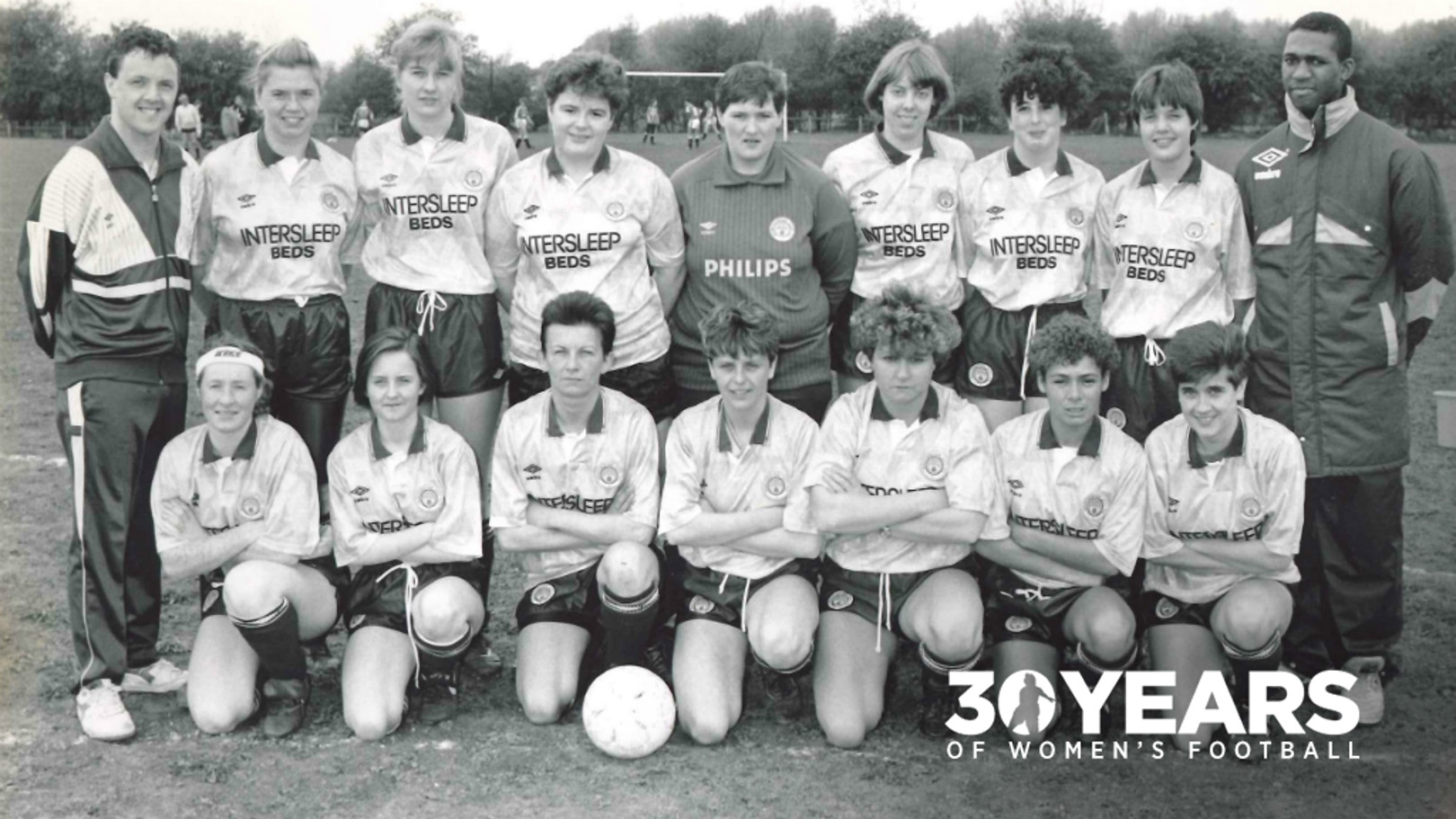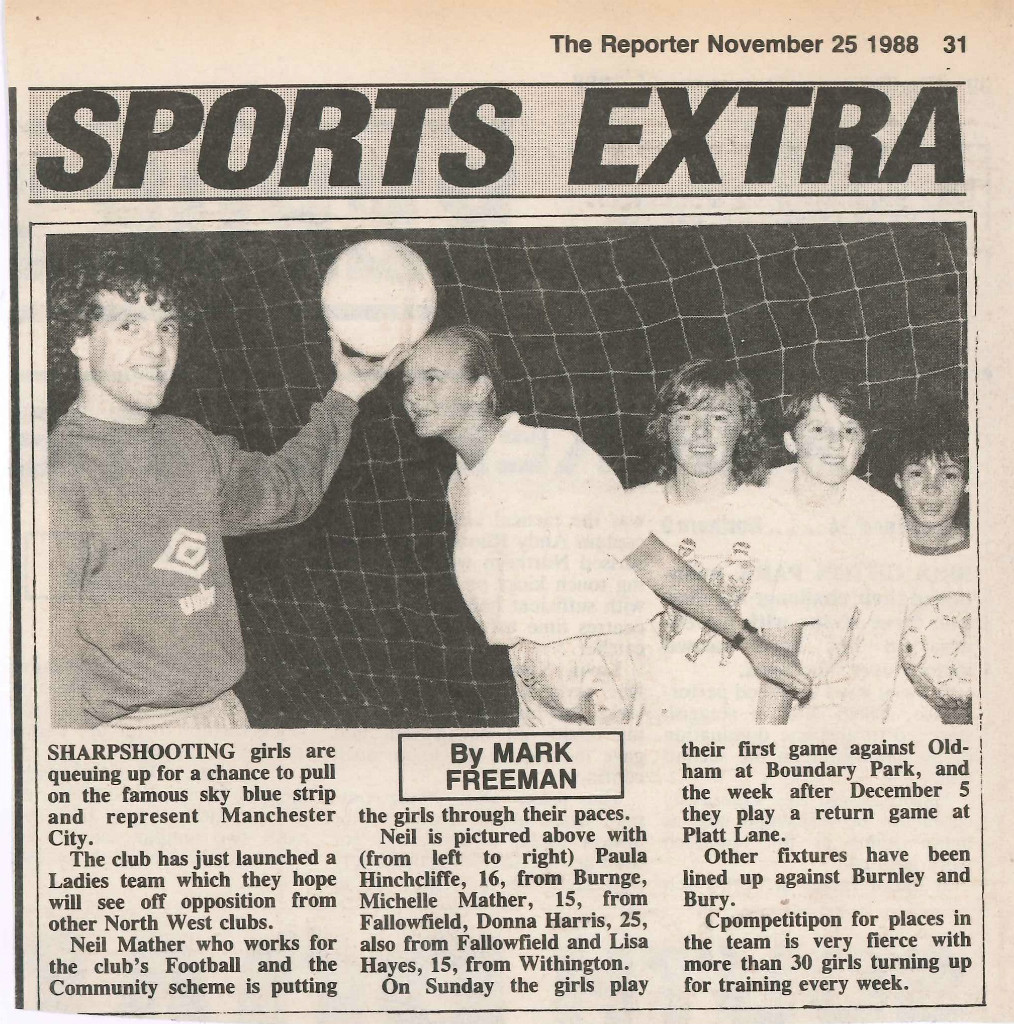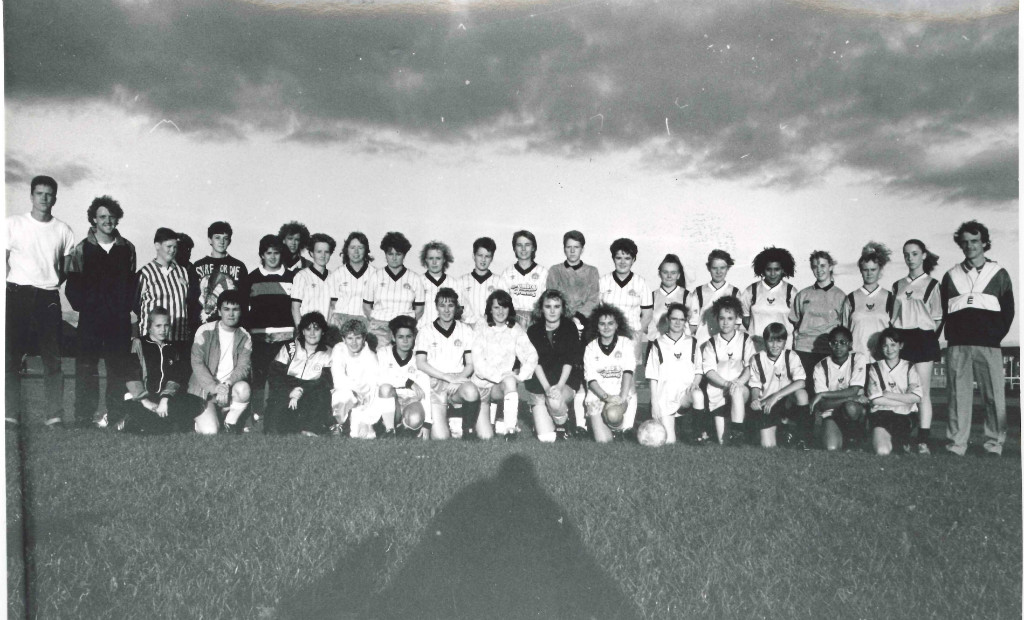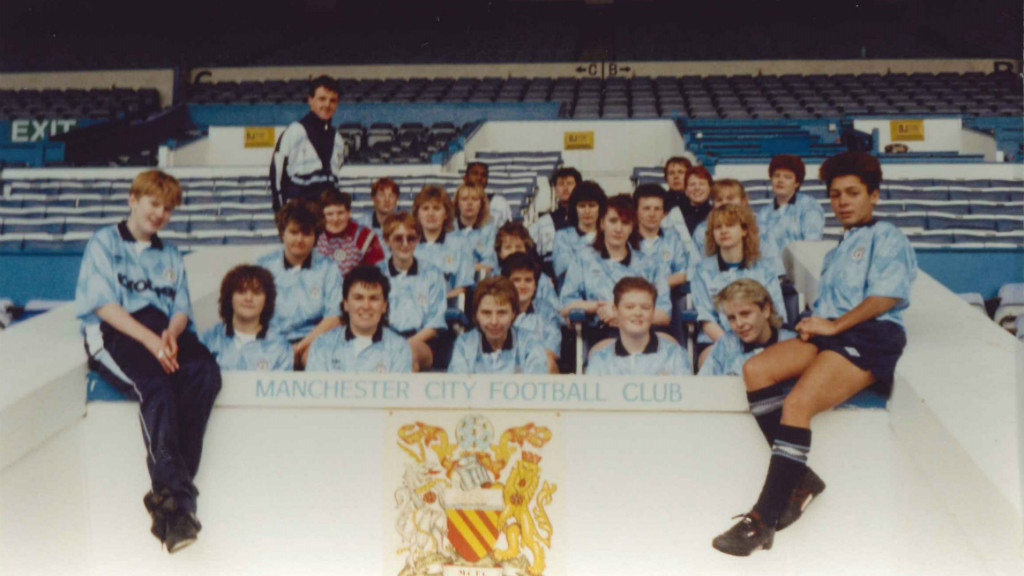Still very much involved with the Club, Mather talks us through the journey from Ladies to League Champions…
***
People asked me years ago: will women’s football ever become professional? I said: “Absolutely no chance!”
Here we stand, 30 years later with a fully professional Manchester City Women’s team and even now, I’m still pinching myself.
I watch the women’s team play regularly at the state-of-the-art Academy Stadium and I can’t quite get my head around it.
READ: Celebrating 30 years of women’s football at City
WATCH: Match highlights | Liverpool 0-3 City
GALLERY: #Steph100 | A Lionesses’ roar
When I visit the Academy and see the way they train – the professionalism – I can’t believe that it’s happening, and I’m so pleased.
One of the big deals for me, as a father of a six-year-old girl who plays football for fun, is the thought that she has women to look up to as her inspirations – not just men.
She sees women playing the game as a career – people like Steph Houghton – and she says: “I want to be like that!”
If Lily wants to pursue a career in football, there are opportunities that weren’t there before – and not just in football: in other sports or other areas of the game. Something that was once laughed at is now taken as equal and it’s wonderful.
Everything has to start somewhere. It was the same with the men’s team. In 1894, it must have been difficult for them to start from scratch – and that’s exactly what we had to do.
It was tough. We had to borrow old kit from the youth team, find a minibus, play on pitches without grass or with inadequate changing facilities which were miles from the pitches. Those first years were challenging.
When we started in 1988, we were the first ‘big club’ to have a women’s team – the big fish; there to be pulled down. There was quite a lot of pressure.
To top that off, I had this reputation as this new coach who was nicking everyone else’s best players – but in truth, everyone just wanted to play for Manchester City. Some even still played for other clubs on a Sunday.
Back then, the FA had nothing to do with the women’s game. Even when we joined the North West Regional League, we had to find our own referees – some of whom ended up being representatives of each club and therefore, extremely biased!
Some of them didn’t take their role seriously because it was ‘just the women’s game’, which I found very disrespectful. I was sent off a few times, having argued some dodgy decisions but often, we were playing in the local park so there weren’t any stands to be sent to! I once hid behind a bush, still relaying instructions – much to the referee’s annoyance.
Our very first game was played against Oldham at Boundary Park. We’d only been together as a team for around six weeks but we set off to play at the men’s stadium, although back then it was an astroturf pitch.
It was a day in November – and it was freezing. Oldham were kitted out in long-sleeve kits, while we only had the youth team kit, which was huge!
The players were complaining about the cold but I told them: it’s all in the psychology. You can’t be cold if you’re moving around!
That didn’t stop them from pushing in front of each other to get to the fan heater at half-time but it worked because we won 4-1!
There was some amusement when one of our coaches John Fox kept shouting: “Carry!” and the players (who didn’t really know each other that well) kept turning to ask who Carrie was. “No, carry the ball!” cried John at half-time, amidst the confusion. You can laugh now!
In the first year, before we joined the League, we played a lot of friendlies – often against teams who the men were playing, before their games. We played Bradford before the famous promotion game in 1989 and managed to blag some tickets.
I still buzz about the fact we won the very first women’s derby. The United team weren’t actually affiliated with the Club but that didn’t matter to us. It coincided around the same time as the 5-1 Maine Road Massacre so we had some fans turn up, chanting: “We want five!” when we went 4-1 up.
In the second season, we became more established and stormed to promotion. We were getting better and better and the progress was huge in the short space of two years.
The Club should be hugely credited for being at the forefront of women’s football. City putting money into women’s football was something that was viewed as ‘novel’ but the Club has always backed the women’s teams since the beginning.
At times, City didn’t have an awful lot but they still gave us everything they could get. Tony Book and Glyn Pardoe helped with the kit and minibus, Alex Williams drove us to games and more, while we also had support from the likes of Colin Hendry, Andy Dibble, David White and Paul Lake.
We always had kit and the Club supported us as much as they could. We played at Maine Road in a UNICEF charity game and at half-time of a men’s game and we had some television coverage with World In Action, Blue Peter and Wide Awake Club, and we were also filmed on FA Cup Final day.
Thirty years ago, people laughed but hats off to the Club for investing and it has to be said: we took everything very seriously.
We trained properly with at least two training sessions a week, some of which involved running up and down steps followed by a game of five-a-side to improve fitness!
We partied hard (no-one can deny that!) but we had a great bunch with some brilliant players. Donna Haynes was our first real star. She was like the Sergio Aguero or Nikita Parris of her day.
She scored our first ever goal and I’d say she’d have fitted in today’s team. Although she never trained, smoked like a chimney and drank like a fish, she could score goals left, right and centre. She was our ‘Maradona’.
The present and the future are very exciting but it’s important to remember that it took 30 years of hard work to reach where we are now.
Many of those original players and staff are all still firm friends now. Some of the players went into management and coaching and while everyone always talks about my involvement, their efforts should be honoured.
None of us ever dreamed the game would be as it is now and that the Club have achieved what we have achieved. It’s amazing to see and I’m so proud to have been part of the journey.









